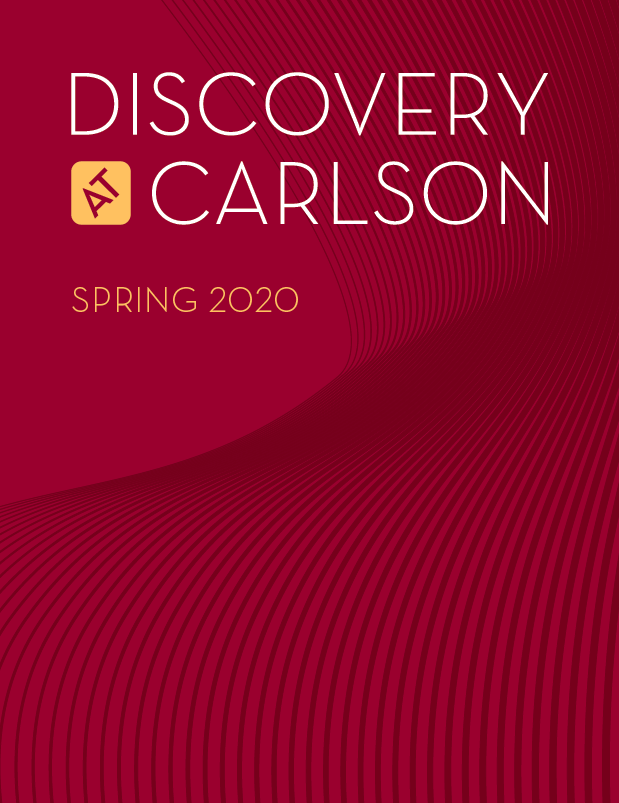
Le (Betty) Zhou: How coworkers influence your behavior
Tuesday, May 19, 2020
If you’ve spent any time in the work world, chances are good you know someone like this: a person who’s always the first to sign up for a corporate volunteer event. Or who enthusiastically encourages coworkers to sign up for the annual blood drive. Or maybe even the person who prominently displays a poster (or two) promoting a social cause in their cubicle.
These are all examples of outward projections of an individual’s morality, or what’s often termed “moral identity symbolism.” And if you find yourself acting a bit differently around these people, Carlson School Assistant Professor Betty Zhou says you’re probably not imagining it. Individuals who exhibit such characteristics—moral identity symbolizers—can have a profound effect on the people they work with.
Peer-to-peer influence
Zhou’s work on the topic focused on several questions. “First, we wanted to understand how people change the way they act in response to the presence of moral identity symbolizers in the workplace,” she says. “And if people do alter their behavior, under what conditions does it happen? Finally, what are the implications of these types of relationships?”
One key finding of Zhou’s research: Moral identity symbolizers tend to make their coworkers act in ways that could be perceived as virtuous. What’s more, those effects occur between peers—relationships where people are on the same level at work. “Thanks to a symbolizer’s influence, you might be more willing to help out one of your coworkers on a project,” Zhou explains. “You also might be more willing to participate in volunteer events that the symbolizer is involved with.”
A judgment-perceived zone
On one hand, that might seem like the symbolizer is simply serving as a powerful source for good. But Zhou’s research uncovered a more nuanced picture. “People also tend to feel judged by moral identity symbolizers,” she says, adding that the person on the receiving end often feels as if their own morality is under question. “That helps drive the positive actions they exhibit.”
Organizations that are trying to establish themselves as moral role models might consider taking a subtle approach.
But perhaps not surprisingly, it can also lead to an undercurrent of tension in coworker relationships. Few of us enjoy the sense of being judged in the workplace, particularly if that judgment originates from a sanctimonious peer. And if the symbolizer starts to get a little too vocal or aggressive, the behavior can quickly cause their peers to tune out the person. “We found that when a symbolizer starts to proselytize—saying, for example, ‘You need to believe what I believe and do exactly what I’m doing’—it tends to trigger reactive behavior. The people on the receiving end may want to do good deeds, but they also want to maintain their sense of autonomy and be their own person.”
Companies should tread lightly
Zhou says her findings have implications for companies. “Organizations that are trying to establish themselves as moral role models might consider taking a subtle approach,” she says. “One example would be a company that demands its employees to do ‘mandatory’ volunteer projects. If the employees feel like the projects are actually designed to generate positive public relations and build the corporate brand, they could feel extremely put upon and react in a negative fashion.”
